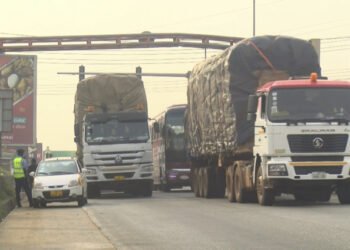Despite holding huge potentials for businesses, awareness of the African Continental Free Trade Area (AfCFTA) among Ghanaian agribusiness firms is still very low.
According to a recent Ghana Statistical Service (GSS) survey, only 25.6% of agribusiness firms across all sectors indicated that they are aware of the AfCFTA. This means that majority (74.4%) of all businesses operating in the agriculture value chain are still not aware of the free trade area.
Even though, generally, the survey shows low awareness among agribusiness firms across all industries in the country, the situation is worst among agribusiness firms in the services sector.
More specifically, the survey finds that about 31.2% of agribusiness firms in the agriculture sector indicated that they were aware of the agreement. This is followed by those in the industry sector (23.9%) whilst 23.2% of agribusiness firms within the services sector also said they were aware.
In other words, the survey finds that 68.8%, 76.1% and 76.8% of agribusiness firms in the agriculture, industry and services sectors were respectively not aware of the AfCFTA.
Harnessing full potentials of the AfCFTA
The lack of awareness of the AfCFTA agreement among Ghanaian firms, especially those in the agriculture and the industry sectors, must be of grave concern to the country. This is because most of the countries within the region, including Ghana, rely heavily on agriculture.
Besides, for any country to harness the full potentials of the trade agreement, it must be able to add value to its raw materials. This is more so, since most of the value addition can be done by agro-based industries in the country.

Therefore, the lack of awareness among firms within these two industries means that there is a missing link between Ghana hosting the secretariat on one hand and also harnessing the full potentials of the agreement on the other hand.
Furthermore, the firms sampled in the survey highlighted possible challenges that the government must address to enable them take full advantage of the AfCFTA.
Overall, firms highlighted six major areas which, they believed, must be improved. The topmost among the supports needed by the agribusinesses was an increase in information on business opportunities (24.7%). This means that more education will be needed to enlighten the firms on the potentials of the trade agreement.
Additionally, the other top two areas highlighted include the reduction in the cost of credit (20.6%), and removing policy or regulatory bottlenecks (16.3%). This also means that businesses need cheaper lending rates to benefit from AfCFTA and also remain internationally competitive.
Digitization and AfCFTA
Conversely, the least support expected was digitization including improved internet connectivity. Only 5.5% of the agribusiness firms sampled across the country indicated that the government must support them with digital services.
AfCFTA provides the opportunity for Africa to create the world’s largest free trade area with the potential to unite more than 1.2 billion people. It also provides a collective GDP of about $2.5 trillion and usher in a new era of development. It has the potential to generate a range of benefits to participating counters. Some of which include supporting trade, structural transformation, productive employment, and poverty reduction.
Trading under the AfCFTA started officially on January 1, 2021, signaling the commencement of Africa’s journey to market integration. The AfCFTA has its secretariat situated in Accra, the capital of West Africa’s second largest economy, Ghana.
READ ALSO: We’ll embark on rigorous education campaign to ensure enrolment on pension scheme- Wireko-Brobbey



















